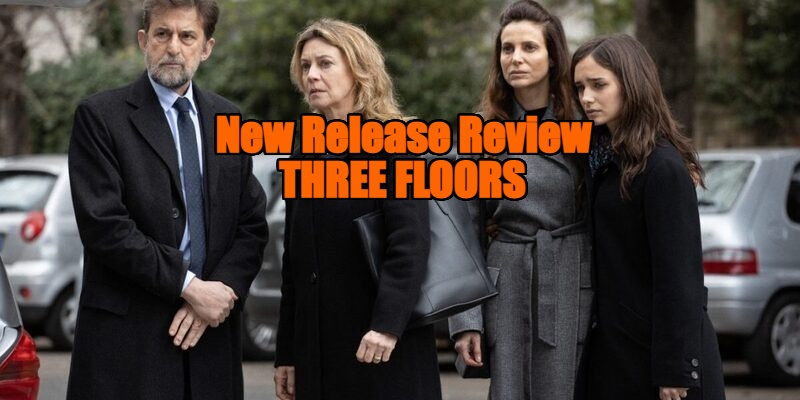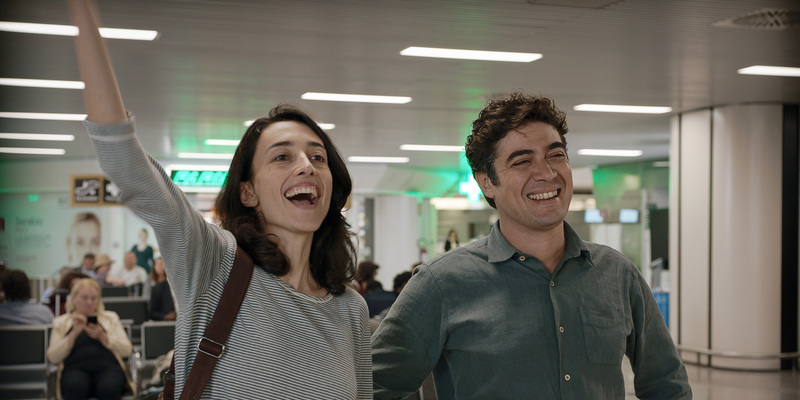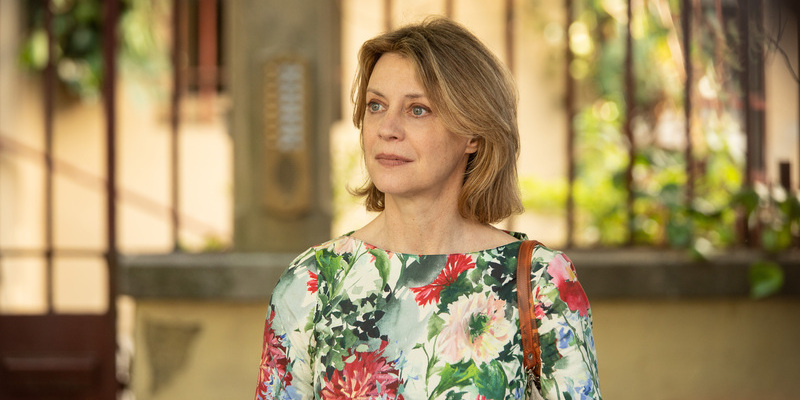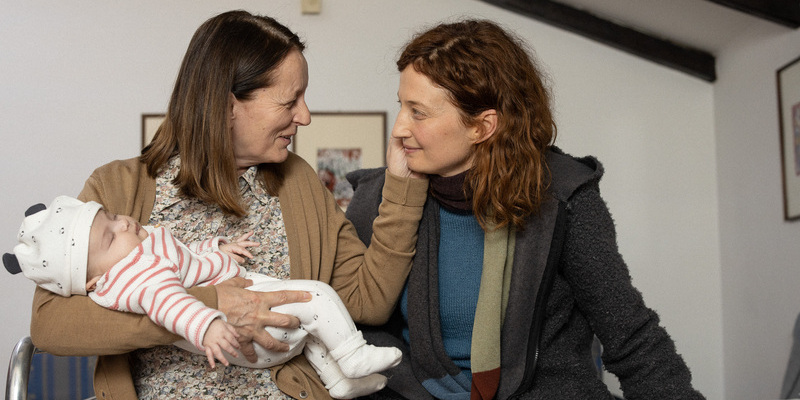
Review by
Eric Hillis
Directed by: Nanni Moretti
Starring: Margherita Buy, Riccardo Scamarcio, Alba Rohrwacher, Adriano Giannini,
Elena Lietti, Alessandro Sperduti, Denise Tantucci, Nanni Moretti

With his masterpiece
The Son's Room, Nanni Moretti gave us one of cinema's great explorations of
parenthood. His latest film features not one but three loosely
connecting stories entwined around parents' relationships with their
offspring. Yet Three Floors - which sees Moretti adapting
someone else's work for the first time, Israeli author
Eshkol Nevo's 2017 novel 'Shalosh Qomot' - couldn't be more
different from The Son's Room. The quiet contemplation of that movie is largely replaced by
melodrama, with some plot beats resembling a soap opera.
The difference between The Son's Room and
Three Floors can be summed up by their closing scenes. The
former ends with a beautiful moment of spontaneity as the parents of a
dead teenager make a spur of the moment decision to drive their son's
girlfriend the hundreds of miles back to her hometown.
Three Floors closes out with an oxymoronical image of
manufactured spontaneity - an "illegal tango," which sees dozens of
dancers pass by the apartment building at the centre of the movie. The
tango has been pre-planned however, and so it has none of the
spontaneous romance Moretti and his characters seem to take from
it.

As its title suggests, Moretti's film tells three stories set among the
denizens of an upper middle class apartment block in Rome. All three
have the potential for successful standalone movies in their own right,
yet somehow all three feel simultaneously overstretched and
undercooked.
The strongest of the stories, or at least the story with the strongest
potential, begins as something of a riff on Kenneth Lonergan's
Margaret as it concerns a character intent on punishing
someone who may not have even committed a crime. Lucio (Riccardo Scamarcio) and Sara (Elena Lietti) often leave their young daughter
Francesca with their elderly upstairs neighbours Giovanna (Anna Bonaiuto) and Renato (Paolo Graziosi). One day Lucio comes home to find
Renato has vanished with Francesca. He finds the pair in a nearby park
and assumes the worst. Despite an investigation by the authorities and
the word of his daughter, no wrongdoing is found to have occurred. Lucio
can't accept this and sets out to prove that Renato abused his daughter.
To help him, he enlists the aid of Renato and Giovanna's teenage
daughter Charlotte (Denise Tantucci), who is smitten with
Lucio.
This story is so captivating that its two companions come off as
unwanted distractions whenever it cuts away. It begins as a compelling
examination of how a media fuelled society has conditioned parents to
adopt a cynical view of their neighbours, viewing everyone as a
potential boogeyman. The intense-eyed Scamarcio makes for a gripping
protagonist, consumed by his belief that he knows more than the experts
(isn't that a storyline for our times). He's a keyboard warrior made
flesh, ignoring all evidence that goes against his personal conspiracy
theory. Sadly, this storyline gets sidetracked by Charlotte's seduction
of Lucio, which ironically sees him accused of the very same thing he
believes Renato is guilty of.

The weakest of the three stories is one of those cases where you
suspect a male storyteller is out of his depth. It concerns new mother
Monica (Alba Rohrwacher), who begins suffering what appears to be
post-natal depression. Her husband, Giorgio (Adriano Giannini),
is largely absent, away working on construction. As she's left alone
with her child she becomes increasingly unhinged to the point where she
begins to hallucinate encounters with people who aren't there. This
storyline slips out of Moretti's hands to the point where it ends in a
manner that's not so much ambiguous as unfinished.
Falling in between is the tale of Andrea (Alessandro Sperduti),
a troubled teen who kills a woman while driving drunk one night. His
father, Vittorio (Moretti), is a judge who refuses to take his son's
side, while his mother, Dora (Margherita Buy), wants to stick by
her son despite his actions. The father-son dynamic is squandered and
expressed in bursts of violence that are difficult to swallow. We're
told through dialogue of their history, but Moretti's filmmaking never
does enough to show rather than tell us about these two men.

That's an issue throughout Three Floors. We learn too much about these characters through their words rather
than their actions, and the camera rarely seems to be pointed at
someone's face when they're thinking rather than talking. Could this
really be the same filmmaker who made The Son's Room, a movie about a therapist who ironically can’t express his own grief?
In a particularly cheap conceit, Dora expresses herself through unheard
messages left on an answering machine. Her husband, we're told, has
never allowed her to truly express her feelings. That's something the
film is guilty of with regards to Dora too however.
Fortunately for Moretti, he's enlisted a knockout ensemble. Aside from
miscasting himself (Moretti is far too avuncular for the cold-hearted
character he plays here), Moretti has populated his film with some
wonderful performers. Despite the film's fluffing of her lines, Buy is
outstanding, propping her half-baked storyline on her shoulders. But
there's only so much weight she and her fellow cast members can carry.
By the time of that previously mentioned unearned blast of fake
spontaneity, you'll likely have lost interest in the inhabitants of
these three floors.


